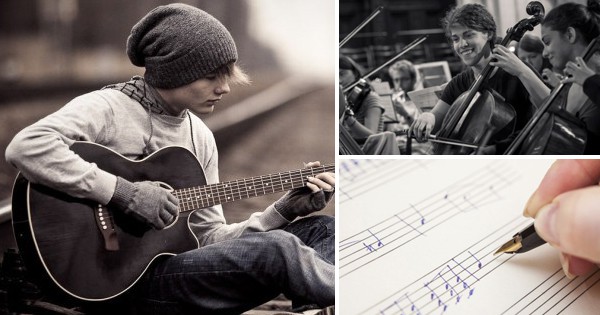Playing an instrument is one of the things practically everyone’s thought of doing at least once, but practically everyone has given up on mastering.
It doesn’t help your self-esteem when you stumble into music class and see a bunch of kids playing the chorus from Judas Maccabaeus while you’re struggling with Twinkle Twinkle Little Star. But don’t give up. There’s a dozen good reasons to get started, and keep on going.
#1. You’ll be better at keeping calm.
Playing an instrument is a great stress reliever. The science shows that making music — not just listening to it — can “short-circuit” the brain’s stress function. Stress hormones spread to other cells in the body getting them stuck in a chronic position of “grrr”, leading to things like anxiety, anger, depression, and physical problems as well.
Playing an instrument helps you get a handle on things like that, literally turning the stress in our cells off by producing an opposite reaction.
#2. You’ll be better at math.
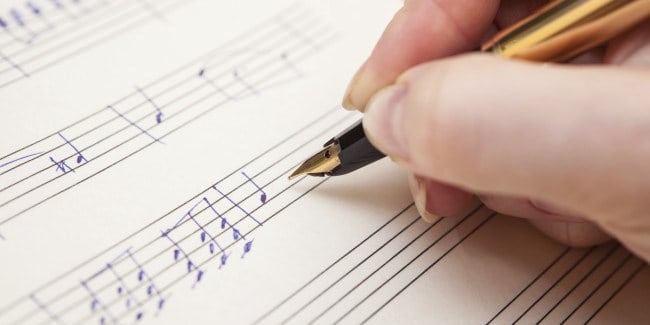
The research for this one is more relevant to children than adults, and has to do with memory and brain power. It’s all related to musical theory and sequential skills.
Over time, your training in pitch, rhythm, complex musical notation and your ability to read music off the page without any additional aid will speed up your ability to do math, due to music boosting your spatial temporal reasoning, which helps you think two steps ahead. This helps you understand mathematics better, and improves your ability to see patterns.
#3. You’ll be better at reading.

Musical training improves reading comprehension in students versus their non-musically trained peers. Rhythm, pitch, and tone, and the way these three are used in music affects the way your brain functions. Constant stimulation of your brain’s cerebral cortex engages your ability to perform spatial temporal reasoning, which further boosts comprehension. However, research also shows that it is repetition and consistency that keeps your brain sharp, not the level of complexity of your music.
#4. You’ll be better at remembering things.
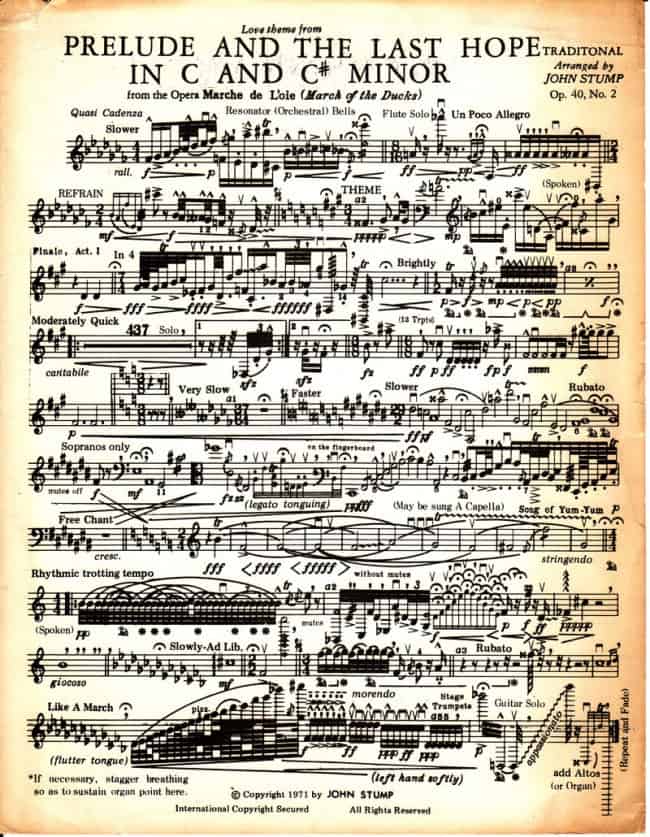
Playing an instrument boosts memory and cognitive function, regardless of age or prior musical ability. Even folks in their 70s showed strong improvements in hand-eye coordination, hearing, and memory after barely half a year of learning music. These effects grow stronger over years of musical training even in subjects aged 80, proving that music stimulates the brain enough to keep it healthy and busy no matter how old you get.
#5. It’ll improve your patience.

When you’re learning to play an instrument, you’re bound to get it wrong, often. Learning music at the beginning is a bit like pummeling your brain into shape, forcing it to see things differently and more smoothly absorb the information you’re trying to shove into it.
It’s hard and you have to practice daily — so it’s obvious that along with mad jazz hands, you’ll develop a state of Zen from the countless times you were ready to (but didn’t) smash a $300 violin against the wall.
#6. It’ll foster a sense of responsibility.

Musical instruments are delicate things — they require care and maintenance, finesse and practice — you may have to grease your instrument, regularly tune and fine-tune it, change its strings, wax the wood, tighten and untighten the bow.
Then there’s the practice: like any skill, a musical instrument demands to be attended to at least once a day for full effect. Making the time to sit down (or stand up) and work on your skills for an hour every day requires a strong sense of commitment, one you’ll either have, or have to build.
#7. It’ll help you express yourself.

Music is art, and art is an artist’s emotions and ideas made real. When you begin to play a musical instrument, the first few months will be devoted to making that instrument part of you and training your brain to cooperate with your musical wishes. But past a certain point, when the experimentation begins to kick in and you start to feel comfortable with your instrument, you’ll open up an infinite number of musical possibilities and start to make music for yourself.
It’ll help you keep calm, develop a sense of achievement and skill, and it might even help you work yourself into a meditative state of mind, reflecting your emotions into sound and music.
#8. It’ll boost your concentration.
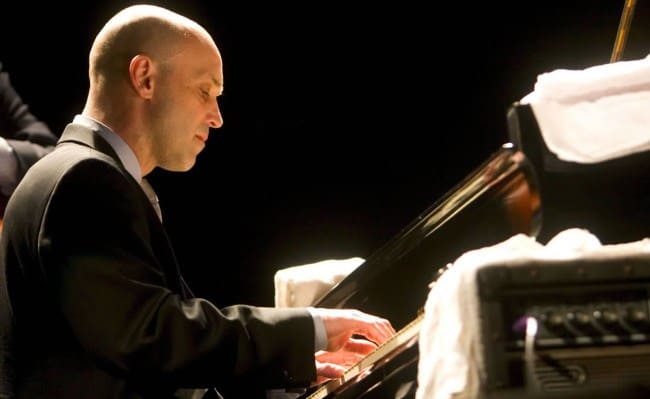
Just like it helps you do math and comprehend language, the effect playing music has on your brain will help you better concentrate on details and patterns, think faster and smarter, and see things you might’ve missed in the past.
It’ll help you focus on the task ahead without getting distracted, and the perseverance of pouring hours over Allegro will help you keep on the ball even when other things might seem temporarily more attractive.
#9. It’ll give you an amazing sense of achievement.

Very few things give you quite the same ego-boost as completely playing a complex piece that had you stumped for weeks and left you frustrated many a times.
Often, learning to play music is like facing an evil adversary. That adversary will taunt you and jeer at you, and make you feel bad about yourself, but all that will be nothing when you achieve victory and be able to play a piece without making a single mistake.
#10. It’ll make you awesome friends.

Playing an instrument enhances your social skills. Not only is it a great excuse to go out and make friends — just head to a plaza or open public space and start jamming — it’s an amazing way to connect and communicate with other musicians.
People who become friends through music have some of the longest and best friendships imaginable, and if you’ve already got a musically-talented friend, then there’s nothing better to help brush that relationship up than a long musical sesh. Grab your instrument and your buddies, and play your hearts out.
#11. It’ll help you overcome stage fright.

There’s a saying: “If you can play your guitar alone, you can play in front of other people.” It might be tough to agree with at first, but like any fear, you just have to get out and get it over with.
Not many people have the skills to play an instrument well enough to make what others would call music, and even less have the guts to go out and show everyone — but if you’ve got both, then there’s no better cure for overcoming your social anxiety than to close your eyes and let your melody flow. If you put your heart into it, there’s no way you won’t be cheered on.
#12. It’ll bring you happiness.
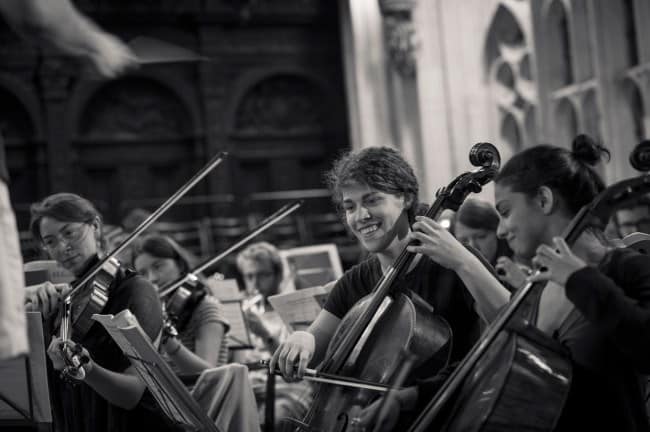
All these things combine to a simple fact: playing an instrument is a surefire way to get a hold of yourself, enhance your cognitive skills, blow off some steam and have fun with others in the process.
Besides, there’s nothing stopping you nowadays. Instruments aren’t hard to come by, and they’re a one-time investment that’ll cost you less than your average smartphone, and with the Internet, even the lessons come for free. All you need is time, and the right push to get started — so consider the latter already in the bag, and the former under your control!

